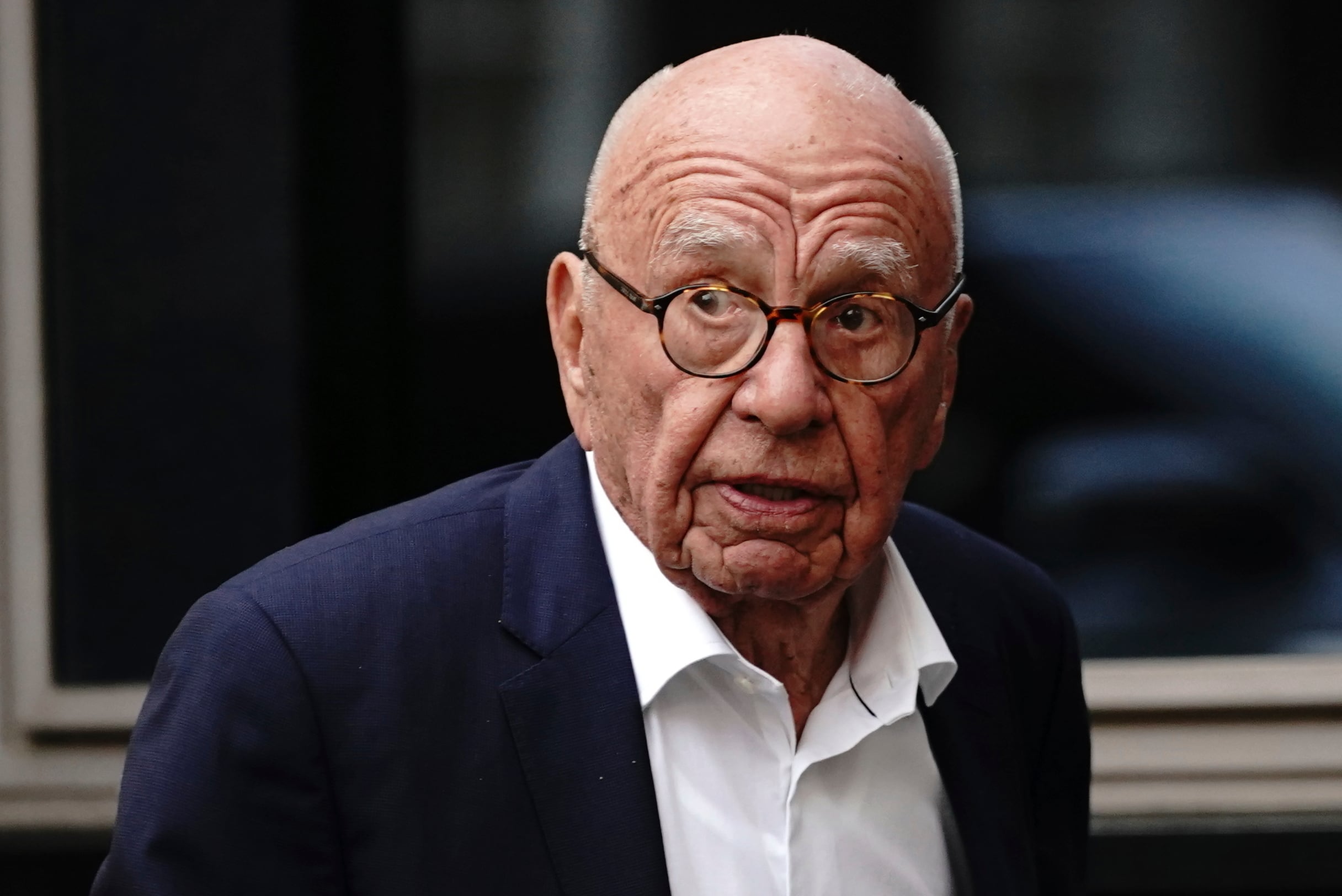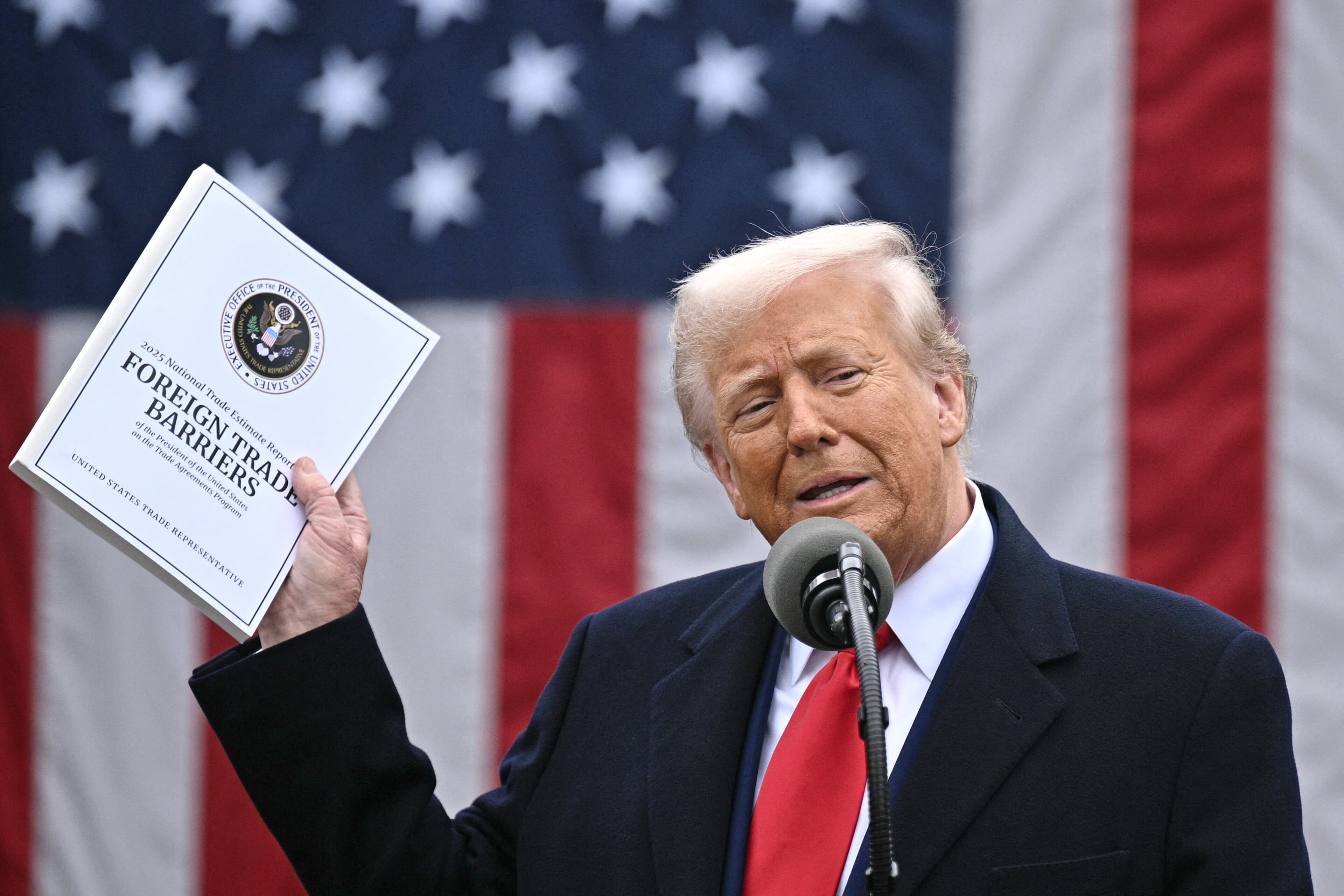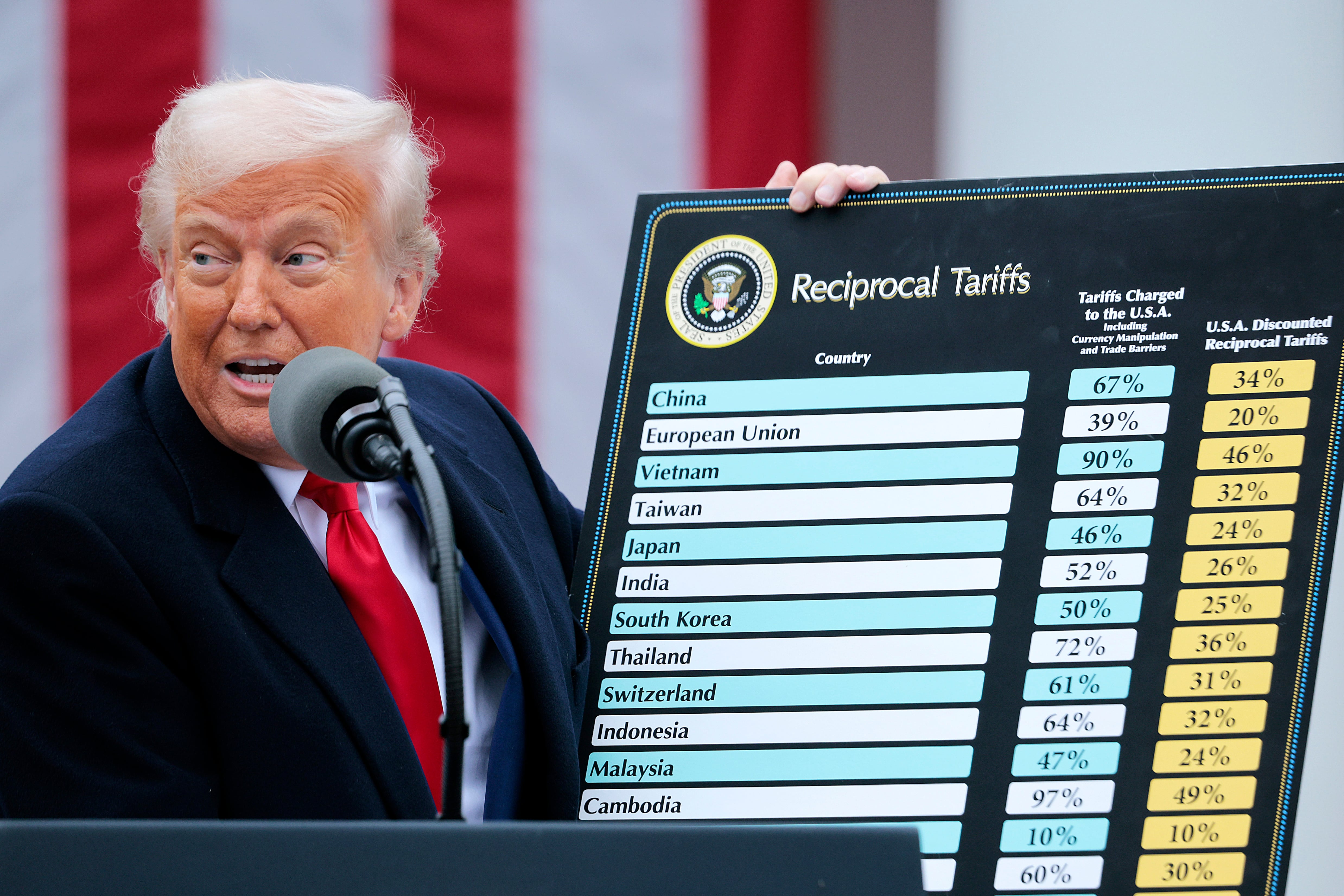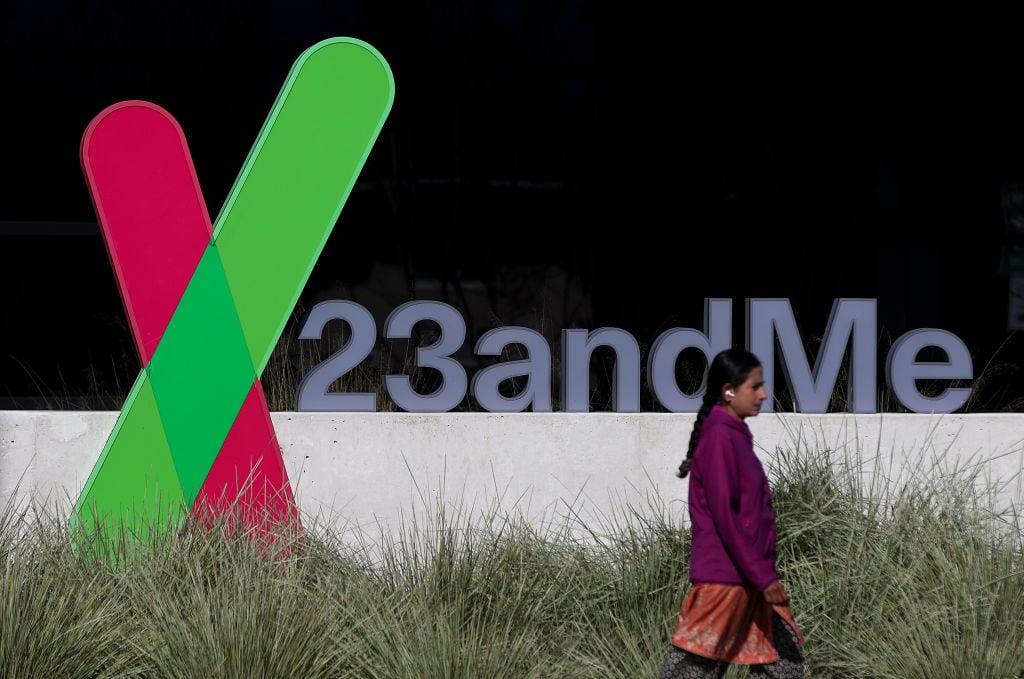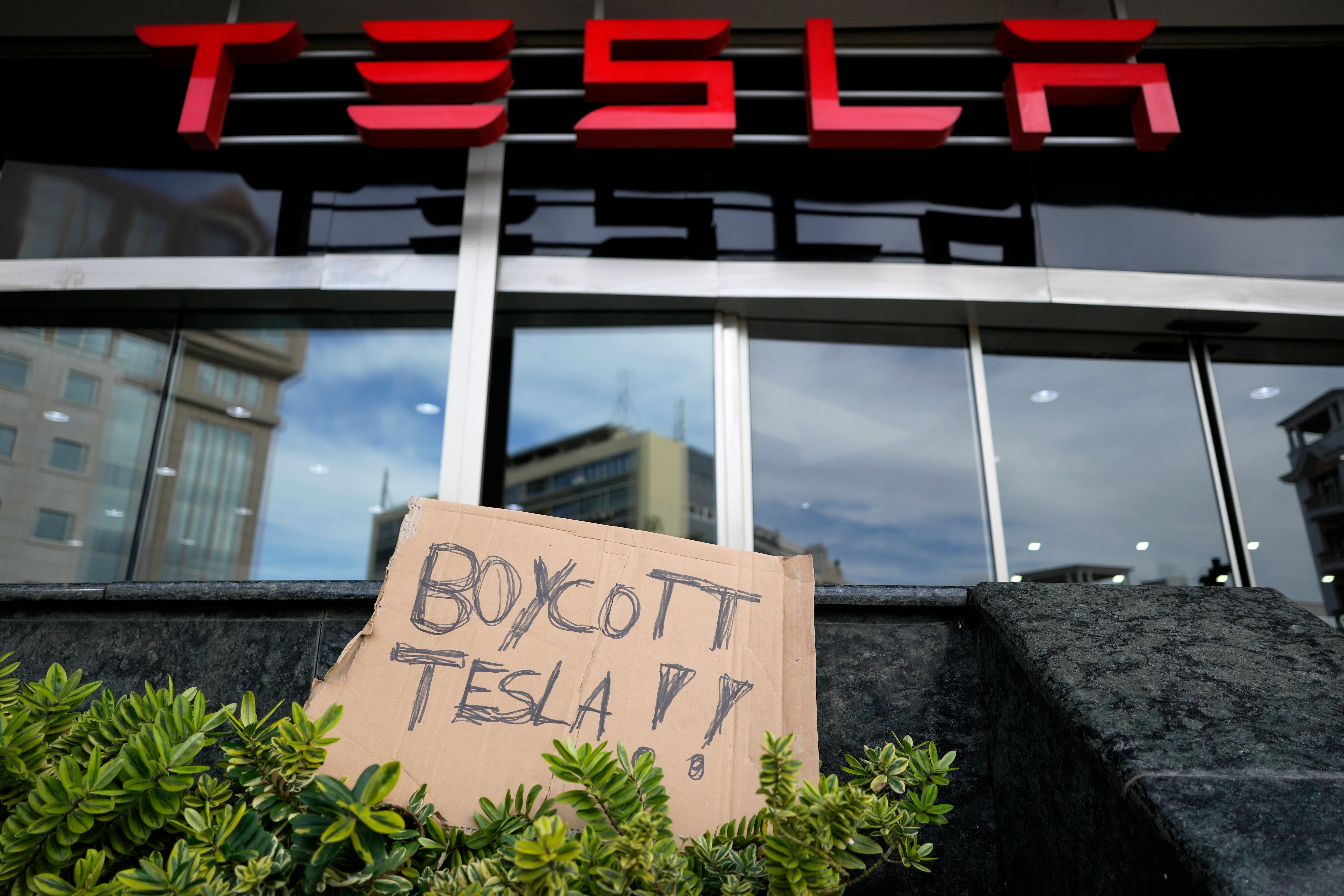The real-life Logan Roy, News Corp. and Fox TV boss Rupert Murdoch, just lost a battle straight out of the HBO series Succession. A representative of the probate court in Reno, Nevada, ruled that the 93-year-old media mogul can’t change the terms of an irrevocable trust he created, blocking Rupert’s effort to hand control of his companies to favored son, Lachlan, the most conservative of his siblings. Murdoch’s other kids, James, Elisabeth and Prudence, sued to block the change. Murdoch assembled the world’s most powerful conservative media empire, which includes Fox News, The Wall Street Journal, The New York Post, and newspapers and TV outlets in Australia and Britain. If Murdoch can’t lock in Lachlan’s control, his right-wing legacy could be in jeopardy with the empire broken up and its influence lost.
The representative, known as a commissioner, said that Rupert and Lachlan—and their representative to the trust, former Attorney General Bill Barr, had acted in bad faith when they tried to amend the trust, which splits control of the empire evenly among all four children after Rupert dies. The commissioner, Edward Gorman, called the plan to change the trust a “carefully crafted charade” to “permanently cement Lachlan Murdoch’s executive roles” inside the empire “regardless of the impacts such control would have over the companies or the beneficiaries” of the trust.
Rupert and Lachlan, Gorman said, had become worried James might rally his sisters and launch a coup against Lachlan, changing the company’s editorial slant. Gorman noted that it was an episode of Succession that got the Murdoch children thinking about how to keep life from imitating television, and Elisabeth’s attorney Mark Devereaux, wrote a “Succession Memorandum” aimed at avoiding a post-mortem calamity. Instead, it just moved the whole dispute forward. Gorman’s recommendation now goes to Reno’s probate court for a final decision.
Watch Big Business This Week on Cheddar—and YouTube!
Elon’s World
The numbers are in from the Federal Election Commission, and it appears that Elon Musk has spent more money on political campaigns than any single U.S. citizen. Musk spent $260 million to support Donald Trump’s election bid, including funding a political action committee called RBG PAC, which claimed (falsely) that Trump and the late and feisty liberal Supreme Court Justice Ruth Bader Ginsburg were of one mind on abortion. • Musk is warning that he’ll bankroll primary challengers to GOP electeds who stand in the way of his Department of Government Efficiency. “Elon and Vivek talked about having a naughty list and a nice list for members of Congress and senators and how we vote and how we’re spending the American people’s money,” said Rep. Marjorie Taylor Greene, the Georgia Republican. • The Washington Post did some digging, and found that the end of Tesla’s so-called Model 2 is tied to a shift in Musk’s attitude toward climate change. As the Post reported, Musk called for a “popular uprising” against the fossil fuel industry in a 2016 film. At Tesla, every internal slide presentation had to include figures from former Vice President Al Gore’s documentary “An Inconvenient Truth,” citing rising carbon dioxide levels in the atmosphere, as a reminder of Tesla’s mission. But then came Trump, and Musk axed the cheap car, saying he needed the cash to buy AI chips from Nvidia to power luxury sedans and the Optimus humanoid robot. Musk now says the existential risks from climate-related disasters have been overstated. The Post says his views were influenced by the “right-wing universe he has come to inhabit online, and in real life in Texas.” • Musk has trotted out his 4-year-old son, X, posting a video of the tyke on the eponymous platform repeating clearly rehearsed answers to daddy’s prompts. “What should I do?” asks Musk. “Help America,” replies the tot. “And?” prompts Dad. The kid’s eyes shift away from the camera, and after a long moment he replies: “Help Trump.” • Luigi Mangione, the 26-year scion of a conservative Maryland political dynasty and the alleged killer of UnitedHealthcare CEO Brian Thompson in Manhattan last week, was apparently a fan of Musk, praising Musk’s “committment to long-term civilizational success” on his own X account. • A series of back-and-forth tweets between Musk and Sundar Pichai, CEO of Google parent Alphabet, about the advantages of solar energy, both on earth and in space, might signal that Musk could get the president-elect interested in solar power again. Despite his pro-oil rhetoric, Trump’s policies were great for solar in his first term. As Fortune pointed out, Invesco’s Solar ETF soared 544% during Trump’s presidency, while the S&P 500 rose 70%.
What do you think of Big Business This Week? Tell us how you really feel in this survey!
The Usual Suspects
- Trumpland: More names are coming in for business- and economy-related posts. The latest is Jacob Helberg as Trump’s choice for the State Department’s top economic policy and trade adviser. Helberg is a former Democratic donor, a tech exec, and a top adviser to GOP donor Peter Thiel’s Palantir Technologies. Helberg is a China hawk who played a key role in lobbying Congress to support the U.S. TikTok ban, Forbes reported.
- The Duke of DOGE: DOGE now has a working boss, according to The New York Times, which reported that it’s already being run day-to-day by Brad Smith, a confidant of Kushner who recently sold his home health care agency Carebridge for $2.7 billion. Under Trump, Smith ran an office at the Centers for Medicare and Medicaid Services that experiments with payment models for health services.
- JetBlue Wants Its Mojo Back: After being barred from acquiring Spirit Airlines, Jet Blue says it wants to do better at less. CEO Joanna Geraghty is axing less profitable routes across the U.S., adding first-class seats and opening business lounges in New York and Boston, all while keeping its prices below those of the big four carriers. A renewed focus on leisure travelers on the East Coast, Geraghty says, will generate as much as $900 million in earnings over the next three years. Shares jumped 11% after Geraghty’s announcement.
- No Mo’ Robo: General Motors is folding its hand after spending billions trying to develop a self-driving taxi, and will cede the field to competitors including Tesla, Amazon and Waymo. But that’s not the end of autonomous vehicles for GM. The Detroit giant said the engineers at its Cruise diviision will now work on devleoping fully autonomous private cars. “You have to understand the cost of running a robotaxi fleet, which is not our core business and is very expensive,” GM CEO Mary Barra told analysts on Tuesday.
- Exxon Powers Up: Oil and gas giant Exxon is getting into the electric power game, fueled by rising demand for juice at AI-powered data centers. The company said it will build its first commercial power plant, fired by natural gas, to supply data centers and will stay off the national electric grid. Exxon won’t say where or when the plant will be built. The new plant will capture 90% of its own carbon emissions, Exxon said. The 1.5 gigawatt plant will be about twice as big as the nuclear reactor that Microsoft is paying Constellation energy to restart next to the site of the Three Mile Island nuclear disaster.
- Warner Bros. Discovering a New Path to Prosperity: Well, that’s what CEO David Zaslav hopes. Hoping to persuade investors and shareholders that it can compete with deep-pocketed streaming rivals including Netflix, Apple, and Amazon, Zaslav said he’ll split the company into two operating divisions. A streaming and studios unit would group the Max, Discovery+, and HBO divisions with the Warner Bros. movie and TV production operations. A second unit would hold legacy cable operations, including CNN, TNT, TBS, Food Network, and HGTV. Zaslav said the move gives the company more “flexibility with potential future strategic opportunities.” That’s basically spin talk for spin-off. Shares rose 16% in midday trading.
Get Big Business This Week in your inbox every week—and read it before everybody else! Sign up today.
The Short Stack
- Hell Hath No Fury: Within hours of a federal judge blocking a proposed merger of supermarket chains Kroger and Albertsons, Albertsons has sued its erstwhile fiancé, claiming Kroger had cold feet and didn’t do enough to win the approval of the Justice Department’s antitrust attorneys, who argued the combo would raise prices and reduce choice for consumers. “Rather than fulfill its contractual obligations to ensure that the merger succeeded, Kroger acted in its own financial self-interest, repeatedly providing insufficient divestiture proposals that ignored regulators’ concerns,” said Albertsons attorney Tom Moriarty. Albertsons wants billions in damages, but Kroger says no way. Shares in Krogers have risen 35% since the deal was announced, while Albertson’s shares dropped 30%.
- Fried Onion? Everybody’s favorite satirical newspaper The Onion was blocked by a Houston bankrpuptcy judge from buying Alex Jones’ conspiracy-theory InfoWars business. Judge Christopher Lopez said the deal was doomed from the moment Infowars’ trustee accepted sealed bids for the operation. Jones was forced into bankruptcy and InfoWars put on the block after parents of the children killed in the 2012 Sandy Hook, Connecticut, school shooting won a massive defamation verdict against Jones, who called the shooting a false-flag conspiracy and said it never actually happened. The Onion said it hasn’t given up. Its bid was supported by many Sandy Hook families.
- Big Ads Gets Bigger: The world’s two largest ad agencies, Omnicom and InterPublic Group, are merging, with Omnicom paying up to $13 billion in stock for its rival. The new group would have net revenue of $20 billion and include storied agencies such as TBWA and McCann. Clients are telling media they hope the agencies will keep focused on business, and not spend all their time in meetings about the merger.
- Squeezing Out the Middlemen: Your drugs might be getting cheaper after frenemy senators Josh Hawley, the Missouri Republican, and Elizabeth Warren, the Massachusetts Democrat, have jointly introduced a bill to cut the power of pharmacy benefit managers, middlemen who push up the cost of medication and take the profits for themselves. Under the proposal, companies that own PBMs could have to sell off their pharmacy businesses (cough CVS cough). The move would take the squeeze off of local pharmacists, who get skinned by the PBMs and have to compete with the chain pharmacies the PBMs own, but it’s not clear if that would bring down drug prices for consumers.
- Then There’s Walgreens: And those drugs might be getting more expensive. Walgreens, the pharmacy and oversized convenience store that’s been closing outlets across America, is in talks to sell itself to private equity firm Sycamore Partners, the Wall Street Journal reports. That’s because pressure from those pesky pharmacy benefit managers is cutting margins at the prescription counter, and Amazon and other ecommerce sites are squeezing margins at the front of the store. A move into healthcare with drugstore-based clinics hasn’t been a profit maker. In fact, things are so bad for Walgreens that its market cap has shrunk from over $100 billion in 2015 to about $8.6 billion on Thursday. In October, the company said it plans to close 1,200 of its 8,700 U.S. locations by 2027. It said a fourth of its stores are unprofitable.
Peter S. Green is a veteran reporter and editor who has spent more than two decades covering business and finance from Eastern Europe to New York City, and has worked for Bloomberg News, The New York Post, The New York Times and The Messenger. He lives in New York City and is always looking for the next big story.
